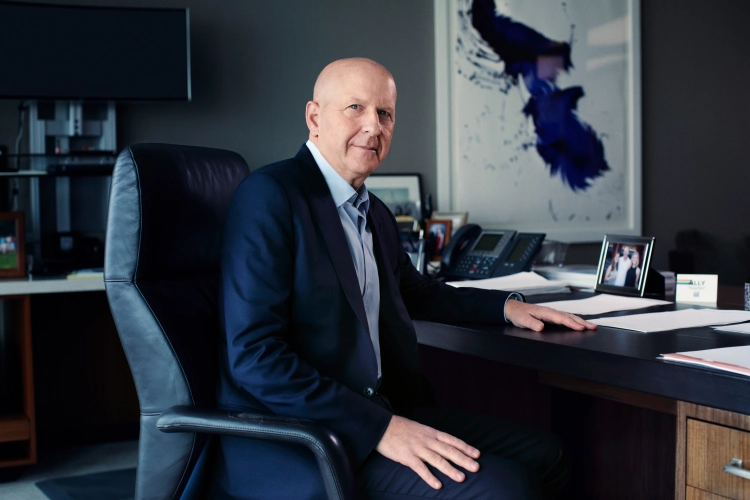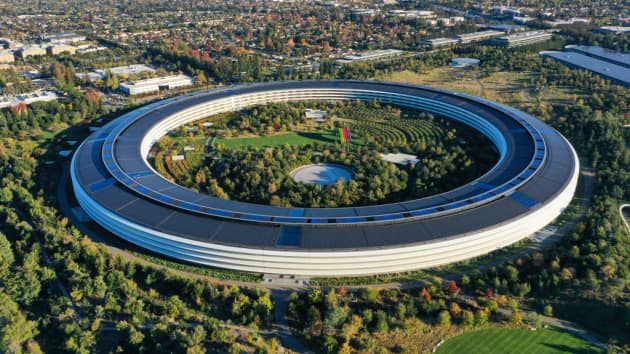
The number of companies going back to offices are increasing in recent months, signaling a policy change to “with Corona” and a long-awaited recovery for dry cleaners. Even IT companies like Microsoft, Apple, Google and Twitter – once a holy grail of remote work – are telling its workers to come back to the office.
▲ Microsoft: In a Monday morning blog post focused on its headquarters near Seattle, Chris Capossela, an executive, said that starting Feb. 28, “employees will have 30 days to make adjustments to their routines and adopt the working preferences they’ve agreed upon with their managers.” While the announcement was focused on the company’s home state, where most of Microsoft’s employees are based, Mr. Capossela said the company’s Bay Area sites “will fully open on Feb. 28, and we anticipate many of our other U.S. locations will follow suit as conditions allow.”
▲ Google: Google said it will end the voluntary work-from-home period and start having employees in the Bay Area and several other U.S. locations return to the office starting the week of April 4. “It’s been a long and challenging two years since the vast majority of our people started working from home,” wrote John Casey, Google’s vice president of global benefits in an email to employees that was viewed by CNBC. Google said it expects most workers to come into the office three days a week and have two days of remote work.
▲ Apple: Apple employees will start to return to offices on April 11, the company confirmed to CNBC. “I can’t tell you how much I am looking forward to being together again,” Apple Chief Executive Tim Cook told his employees in a memo last week, outlining his company’s April 11 hybrid back-to-work plan.
▲ Meta (Facebook): The company says employees will need to be back at work on March 28, unless they request a deferral before mid-March.
▲ Twitter: It reopened its offices on March 15th. It is the first large corporation that give its employee an option to work remotely permanently.
We will have to see what kind of ripple effect these announcements will have on the rest of the industry. But there has been some criticism that remote work policy has weakened employee loyalty and “corporate culture.”

▲ Goldman Sachs: Fighting a strong trend toward hybrid work, Goldman Sachs CEO David Solomon has repeatedly insisted that employees return to the office full-time, leaving no doubt that he views remote work as a temporary aberration. But on the day the investment banking giant reopened its U.S. offices in February, after shutting down during the Omicron wave, just 50%, or about 5,000 of the building’s 10,000 workers, returned to its New York headquarters. Recent in-person attendance at the bank’s HQ has averaged 60% to 70% over the course of a week, the spokesperson said, close to its occupancy last fall before the Omicron shutdown. At the time, some 8,000 workers trekked into the office at least one day a week. Solomon believes new recruits’ apprenticeship needs building network face-to-face and teamwork is essential in its culture.
▲ Some of Goldman’s Wall Street rivals, notably JPMorgan Chase and Morgan Stanley, are also taking hardline stances on bringing employees back to the office. JP Morgan Chase CEO Jamie Dimon said last year remote work “doesn’t work for spontaneous idea generation” and erodes culture. Others, including Citigroup and UBS, believe the pandemic has changed the working world for good, and they view hybrid work as a powerful attraction for top talent.
▲ While positive motives like building corporate culture and teamwork are prompting this “back-to-office” policy change, negative motive’s like boss’s mistrust also exist. Most bosses think employees work most efficiently when closely monitored. This kind of mistrust has been shown in many reports.

▲ Apple invested an estimated $5B in building the Apple Park headquarter in Cupertino when it opened in 2017. Google has bought an office building for $2.1B in Manhattan. Facebook is expanding its office square footage in Manhattan, Boston and Austin. When companies invest that much money in real estate, one can assume remote work is not part of their long-term policy.
▲ City, state and federal employees are all going back to offices. “New Yorkers, it’s time to get back to work,” said NYC mayor Eric Adams. “That accountant that’s not in his office space is not going to the cleaners,” he said. “It’s not going to the restaurant. It’s not allowing the cooks, the waiters, the dishwashers [to make a living].”

In his first State of the Union speech, president Joe Biden said “”It’s time for Americans to get back to work and fill our great downtowns again.”

